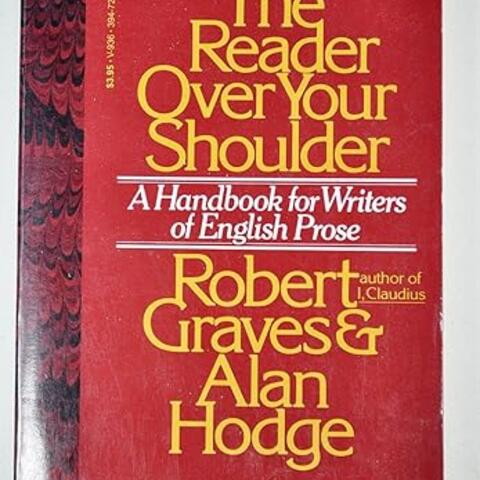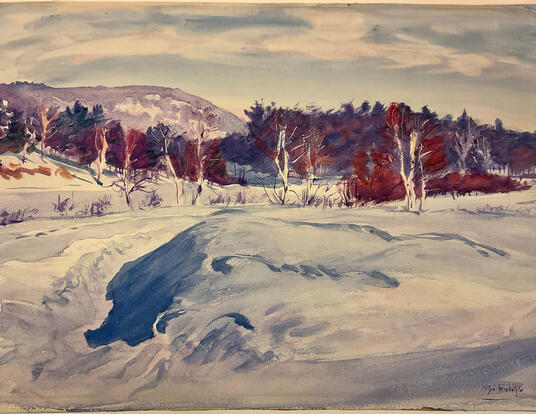Three Minute Thesis: A Spotlight on Graduate Student Research
Notes from a Writer's Desk
Research at Risk: Since World War II, universities have worked with the federal government to create an innovation ecosystem that has yielded life-changing progress. Now much of that work may be halted as funding is withdrawn. Find out more about the threats to medical, engineering, and scientific research, as well as how Harvard is fighting to preserve this work—and the University's core values.
On a recent Thursday afternoon, the FWC hosted the inaugural Three Minute Thesis Competition for Harvard Griffin GSAS students. First held at the University of Queensland, Australia in 2008, Three Minute Thesis (3MT®) has since developed into an international competition, with students from approximately 1,000 institutions in the United States, United Kingdom, Canada, and the Asia-Pacific region taking part in their own events. The competition tasks students with presenting their research in a comprehensible manner to a broad audience in no more than three minutes, using the aid of one static slide to complement their talk. The event thus gives students the opportunity to develop and refine their research communication skills, creating a unique platform for them to share their work and its significance.
Gathered in the Fong Auditorium, our 10 finalists from across a number of fields enthralled the audience with their innovative projects, as they competed for prize money as well as the chance to go on to the Northeastern Association of Graduate Schools 3MT competition later this spring. In preparation for the event, students worked with staff members of the FWC to polish their talks, which spanned a range of topics and approaches: to name just a sample, a data-driven approach to environmental justice in the face of policy inequities; advances in machine learning and AI that can aid in areas such as health rehabilitation or our understanding of evolution; a potential new avenue to halt Alzheimer’s disease; insight into the neural circuits that drive motor control; and a psychological examination of collaborative behavior. Each speaker presented their research with poise and enthusiasm, contributing to an atmosphere of learning and intellectual joy. In the end, the event was a powerful reminder of the amazing work that our graduate students carry out every day, and of the impact that they have on society.
As the judges deliberated, our audience members voted for their favorite talk for the Audience Choice Award, which was followed by an open Q&A that allowed participants to discuss the fascinating work in a more informal manner. The three judges, representing the humanities, social sciences, and STEM fields, had a very difficult decision to make, and they returned with the following selections: in first place, Nikhil Chari (Organismic and Evolutionary Biology); in second place, Yu Chen Zhao (Population Health Sciences); and in third place, Maithili Joshi (SEAS, Bioengineering). Taking home the Audience Choice Award was Alexia Simon (Astronomy). (You can find our full list of participants and additional details here.)
Nikhil Chari was a deserving winner indeed, presenting a talk cleverly titled, “Getting to the ‘Sweaty Root’ of the Carbon Cycle.” His research focuses on exudates—sweat, essentially—that plants give off from their roots when they capture more carbon than they can use during photosynthesis. While the excess is deposited into the soil, which prevents it from entering the atmosphere as CO2, Nikhil’s research shows that too much root sweat has the opposite effect: through a process known as the priming effect, excess root sweat actually leads microbes in the soil to work faster, releasing more carbon into the air than they otherwise would. Alarmingly, exudation rates triple from 0 to 9 degrees Celsius of warming. This might spell bad news for the carbon cycle and global warming: the hotter it gets, the more plants sweat, but the more plants sweat, the hotter it may get as excess carbon is released into the atmosphere instead of staying in the soil. Nikhil’s work adds critical insight to our understanding of global warming.
Yu Chen Zhao, our second-place winner and a PhD candidate in population health sciences, is affiliated with Massachusetts General Hospital's Division of Pulmonary and Critical Care Medicine. In his talk, “GRK5: A Molecular ‘Smoke Detector’ for Early Lung Cancer,” Yu Chen shared groundbreaking research on new pathways for early lung cancer detection. Using data from the Boston Lung Cancer Trans-omics (BOLT) Initiative, he compared over 1,400 tumors with healthy tissues from the same patients to identify the earliest molecular changes in the human body. His work has already identified several RNA markers that show significant differences between tumors and healthy tissue in early-stage lung cancer. By analyzing and validating RNA markers that are potentially detectable in routine blood tests, Yu Chen aims to revolutionize cancer screening and prevention.
A bioengineering specialist, Maithili Joshi gave a talk called “Stopping the Invisible Bleed: A Peptide Solution for Trauma Care,” which was awarded third place. As Maithili explained, when you sustain an external injury like a cut, it’s easy to disinfect, stitch up, and bandage. But, she asked, what if the injury is on the inside of the body, where you cannot easily put a bandage? Maithili is solving the problem of internal bleeding in first aid with an injectable polymer peptide solution that is stable at room temperature and easily portable. In rat testing, the solution reduced blood loss and mortality rate and increased organ stabilization compared to traditional methods. Maithili hopes that it will soon become a standard component in first aid kits so that severe internal hemorrhaging is no longer a life-threatening condition.
Alexia Simon took home the Audience Choice Award for her talk titled, “Frozen Clues: HowCosmic Ices Shape Water and Life.” Alexia is an astrochemist who recreates the extreme conditions of space in the lab. Her work specifically focuses on how space ice can change in response to stimuli like ultraviolet radiation, especially during the early phases of planetary development.
Ultimately, all 10 talks were illuminating and all of the speakers deserve praise for the research they conduct and the care they put into their work. Their dedication became especially evident during a Q&A exchange that led to a poignant moment, in which we heard heartfelt remarks about the personal import of research, as well as the opportunity to pursue free intellectual inquiry in a supportive community. The message was not lost on anyone present, nor should it be forgotten. Our hope is that this forum will become an annual tradition to hear about just a small portion of the remarkable things that our graduate students continue to do.
Get the Latest Updates
Join Our Newsletter
Subscribe to Colloquy Podcast
Simplecast




